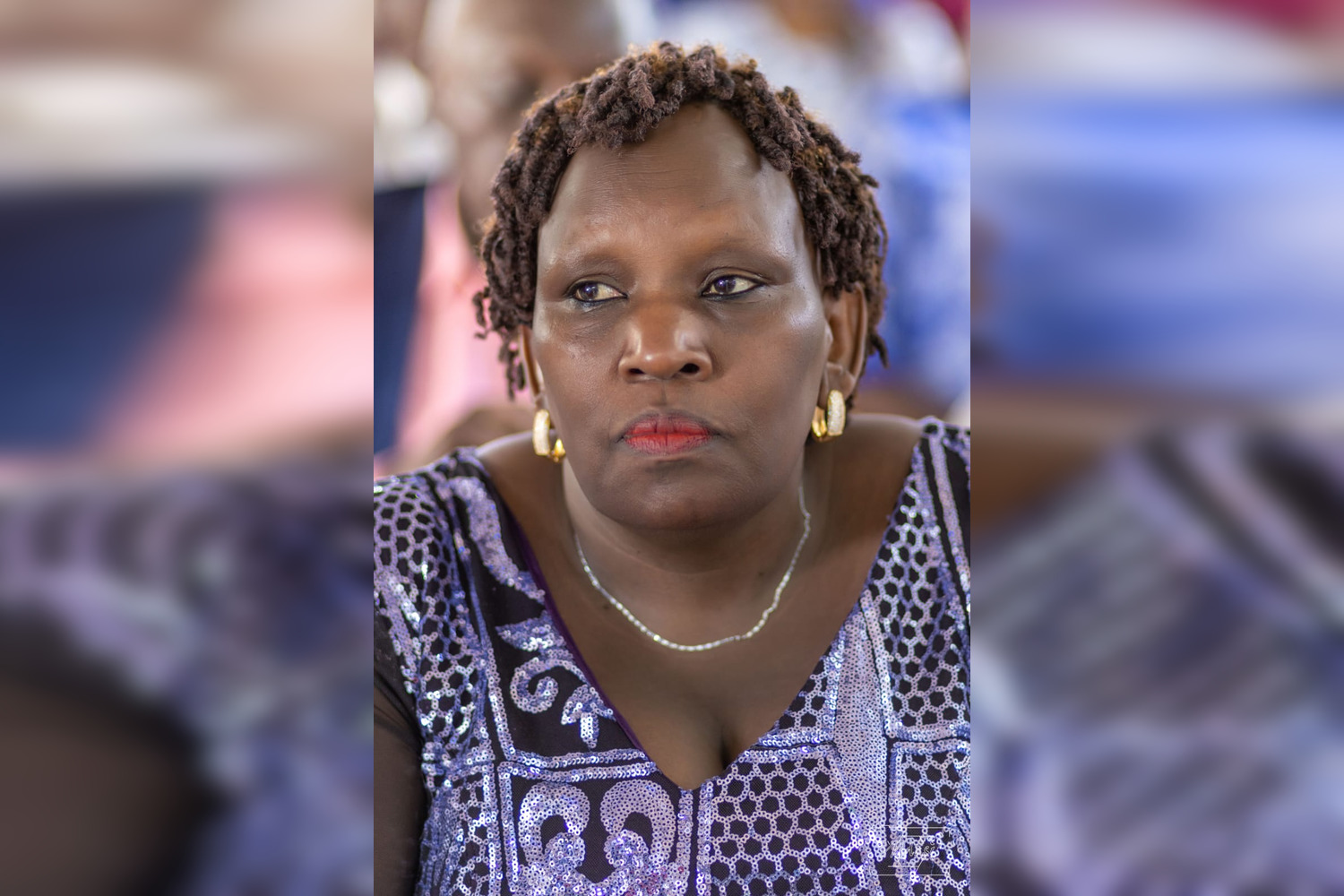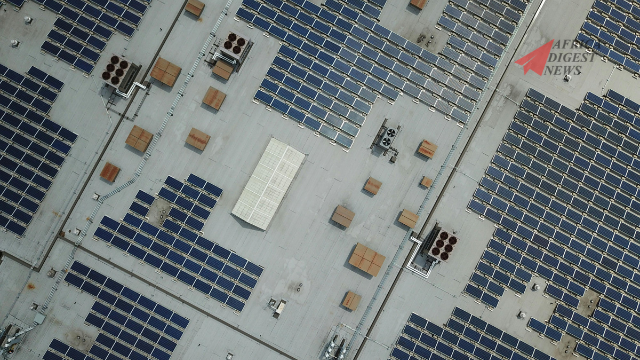By. Anne Kamonjo.
Anne Kamonjo is an education reformer and sustainability champion working at the intersection of policy, training, and systems change. She currently works at the Ministry of Education, State Department for TVET, leading Kenya’s national effort to institutionalize green skills across technical training institutions.
A few weeks ago, I had the honour of presenting at the Africa Climate Summit 2025 in Ethiopia.
This was more than a moment of personal pride; it was a platform to advocate for a vision that must define our continent’s next decade: Green Skills Development for Workforce Readiness.
Africa is standing at the intersection of two powerful forces: a demographic wave and a climate emergency. With more than 60% of its population under the age of 25, the continent is rich in human capital. But that potential can only translate into prosperity if we urgently prepare our youth to lead the green transition. The challenge is not about whether we act, but about how swiftly we can equip our people with the tools to build a sustainable, resilient Africa.
The conversation around climate action too often focuses on infrastructure and technology. But these elements cannot function in isolation. People, skilled, prepared, and empowered, are the true drivers of change. Our engineers, technicians, entrepreneurs, and community stewards must be ready to deliver climate-smart solutions across energy, agriculture, transport, manufacturing, and beyond.
Africa’s journey toward sustainability is guided by Agenda 2063, the African Union’s bold vision for a united, prosperous, and peaceful continent.
Central to that vision is the creation of green jobs – opportunities that not only reduce environmental degradation but also address soaring youth unemployment. By focusing deliberately on training young people in emerging sectors like renewable energy, sustainable agriculture, circular economy, and green manufacturing, we can leapfrog outdated industrial models and create what I call a “dual dividend”: decent work and a climate-resilient economy.
Why Green Skills Matter Now
The global green transition is estimated to create up to 24 million new jobs by 2030. But these jobs will only materialize if our skills systems evolve fast enough to meet the demand. Without people who are equipped to install solar panels, maintain e-mobility systems, build green infrastructure, or restore degraded ecosystems, our climate investments will fail to deliver results. We must acknowledge that workforce readiness is not a peripheral issue, it is central to Africa’s climate future.
In the African context, green skills take on a unique multidimensional character. They involve technical know-how in areas such as solar PV installation, climate-smart farming, e-mobility maintenance, sustainable construction, and waste-to-resource systems. They also encompass transferable abilities like systems thinking, digital literacy, problem solving, and entrepreneurship—capacities that allow workers to adapt across sectors. But just as importantly, they include cultural and community competencies: the ability to apply indigenous knowledge, act as stewards of the environment, and lead inclusive, gender-sensitive approaches to sustainability.
The Reality of the Skills Gap
Despite the strategic clarity of Agenda 2063, the pace of transformation in our education systems remains slow. The first ten-year implementation plan of the Agenda showed that Africa had achieved only 24% of its target for creating well-educated citizens. This gap is especially evident when we look at the mismatch between what youth are being taught and the skills demanded by employers in green sectors. Curricula in many TVET and higher education institutions remain outdated, rigid, and disconnected from industry needs. Women and marginalized groups continue to face barriers to access, further deepening inequality in the green transition. Industry partnerships are often fragmented or missing altogether, resulting in ecosystems that are not fit for purpose.
Five Big Ideas That Can Change Everything
Fortunately, we are not starting from zero. There are real, proven solutions that can help us build scalable and inclusive green skills pathways across the continent.
First, we need to mainstream dualized learning. This means creating structured systems where classroom instruction is directly integrated with hands-on industry experience. Imagine a solar firm co-training technicians while they pursue certification, or an agri-tech startup mentoring students in climate-smart methods while they complete their coursework. This model ensures that graduates are not just job seekers—they are job-ready.
Second, we must elevate Recognition of Prior Learning (RPL) as a mainstream policy tool. Across Africa’s informal sector, thousands of climate heroes are already doing the work. Waste pickers are supporting circular economies. Community solar installers are powering homes. Urban farmers are building food security. Yet, because their skills are not formally recognized, they remain invisible in national labour systems. RPL allows us to validate, certify, and uplift their expertise, offering dignity, access, and mobility to workers who are often excluded from formal employment.
Third, we should urgently professionalize the nature-based workforce. Restoration work—be it river regeneration, mangrove protection, or watershed management, is not just charity or community service. It is high-value, high-impact labour that plays a crucial role in climate resilience. If structured with accredited training, tools, and clear career pathways, eco-restoration can become a respected profession, especially for rural and semi-rural communities.
Fourth, technology must be harnessed to scale green skills quickly and affordably. Digital learning platforms, mobile-based microlearning, and AI-powered training systems can reach youth in both urban centres and remote villages. Virtual reality can simulate complex installations or restoration work, offering immersive, scalable instruction. This is how we train millions—not dozens—and close the access gap at speed.
Fifth, we must harmonize green skills standards across Africa. Climate change is borderless, and our response must be equally cohesive. Harmonized curricula and credentialing will enable young Africans to move and work across regions, supporting large-scale climate infrastructure projects under the African Continental Free Trade Area (AfCFTA). Shared standards will also boost employer confidence and raise the quality of training across the board.
Financing the Green Skills Revolution
No conversation about scale is complete without addressing the elephant in the room: finance. Africa requires an estimated 30 to 50 billion dollars annually for climate adaptation. Yet very little of this flows to skills development. The overwhelming majority is allocated to infrastructure, leaving people behind.
To change this, we must embed green skills in our Nationally Determined Contributions (NDCs) and climate strategies. Climate finance must include an explicit “skills finance” component. Governments should offer incentives like tax rebates, matching grants, and skills levies to encourage private sector participation. Continental frameworks like Agenda 2063 and AfCFTA must be leveraged to enable cross-border recognition and investment in skills development.
A Bold Call to Action
I have one clear call for everyone in this sector: Let us commit to a “Skills Compact for Climate Action”—a united, pan-African pledge that every climate investment must also be a skills investment. We cannot build a green economy on the backs of an unprepared workforce. We cannot drive inclusive growth if our women, youth, and informal workers are not part of the solution.
This compact must be bold, actionable, and inclusive. It must be backed by policy, powered by partnerships, and anchored in the lived realities of African learners and workers.
The Africa We Want Starts with Its People
Green skills are the bridge between vision and reality, between the Africa we imagine and the one we must build. They are the engine behind sustainable industries, circular economies, clean energy, and restored landscapes. They represent the clearest path to social equity, job creation, and climate resilience.
The Africa we want is not a distant dream. It is a collective commitment. By investing in our people with urgency and intentionality, we can navigate the climate crisis and emerge stronger, smarter, and more united.
It’s time to move from talk to transformation.
From policy to practice.
From ambition to action.
Let’s train not just to survive, but to lead.



